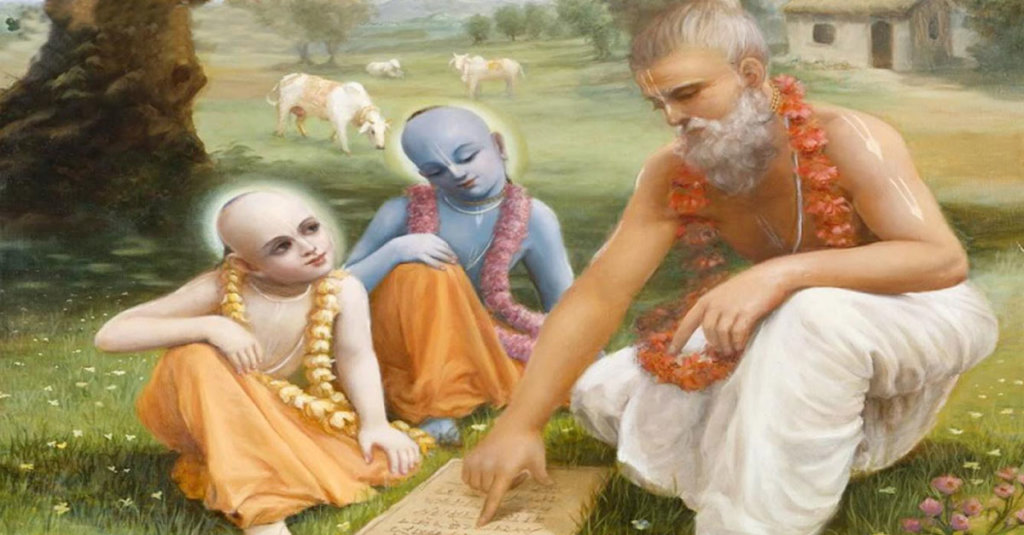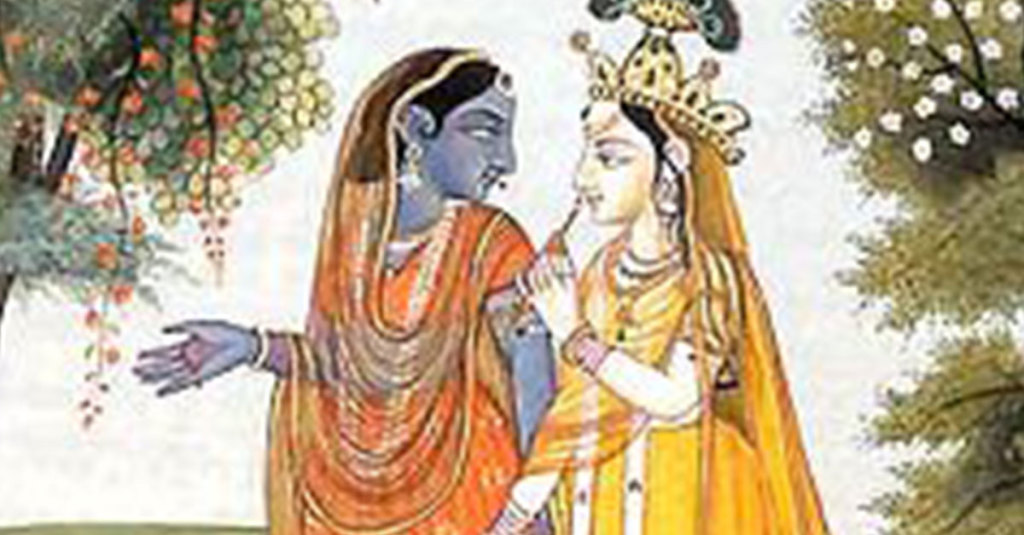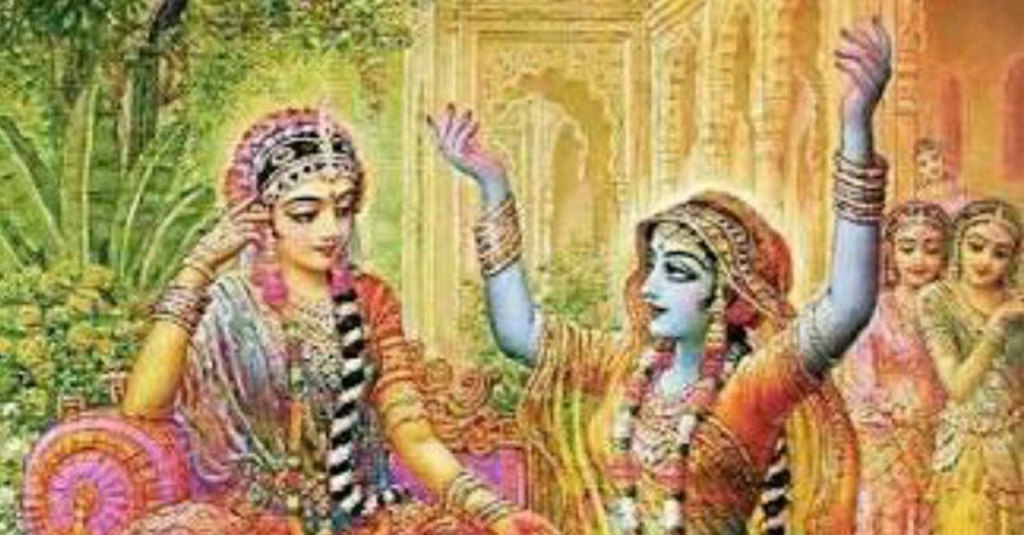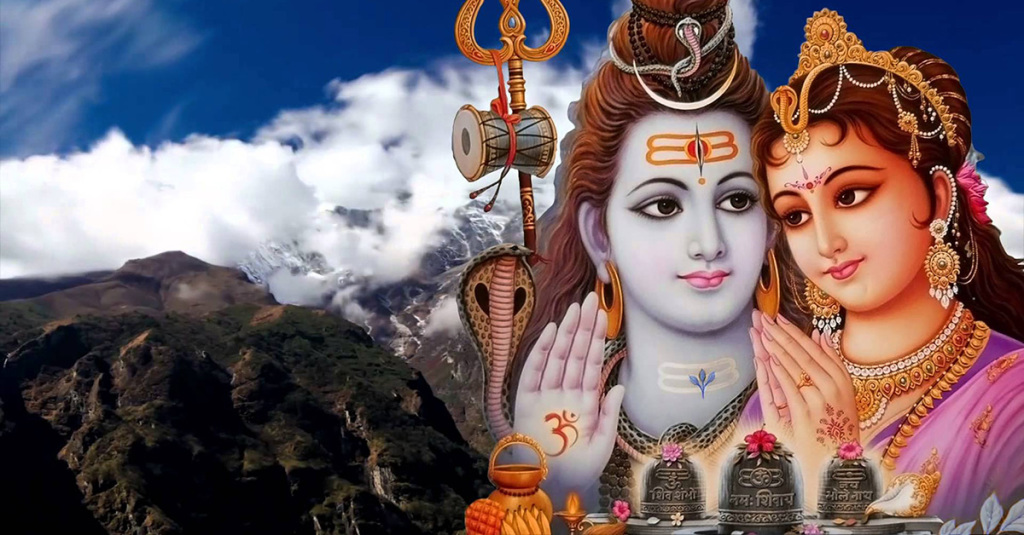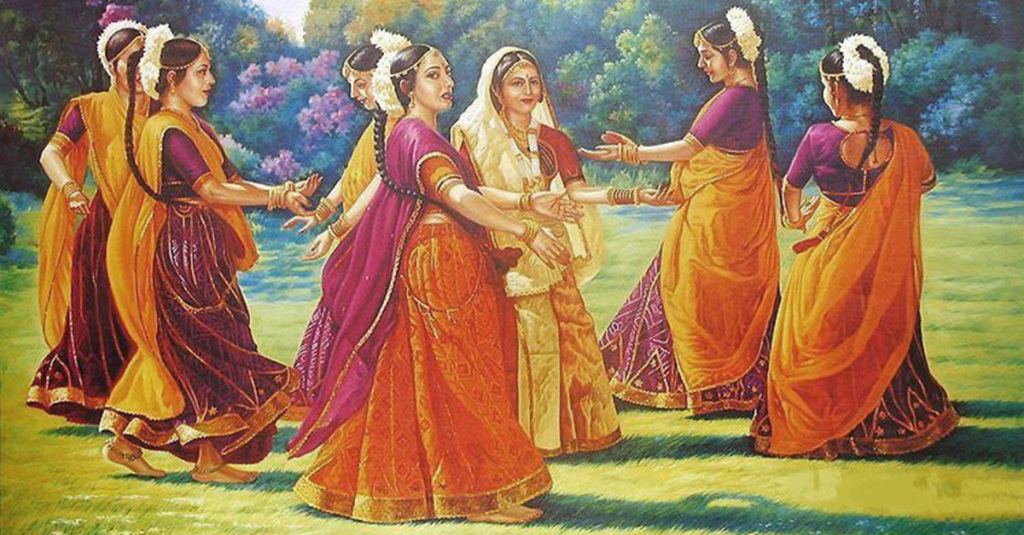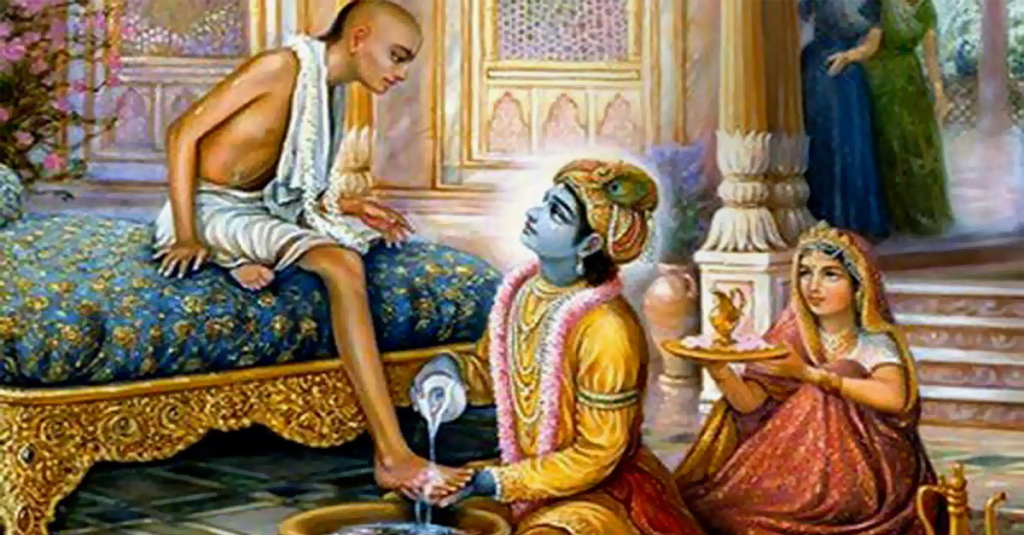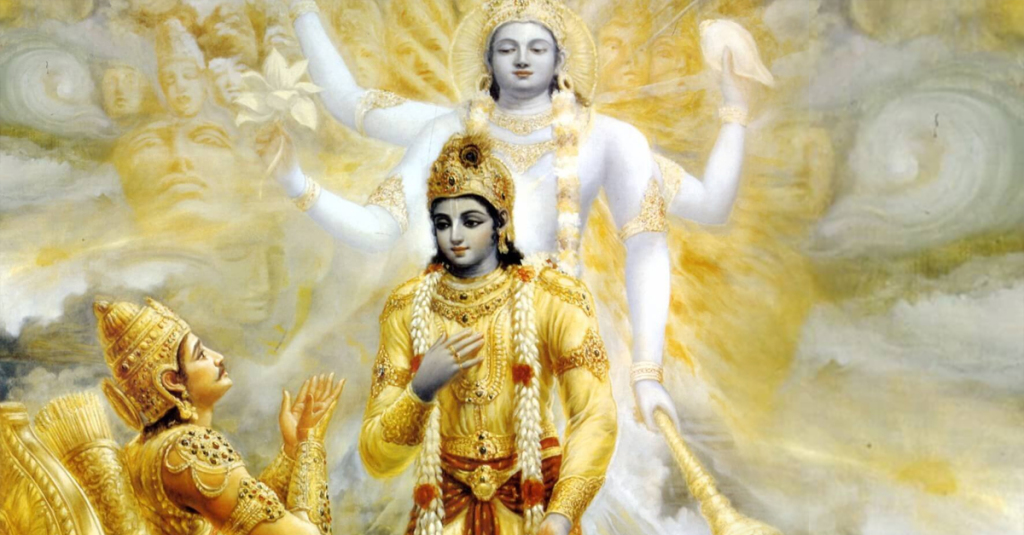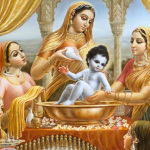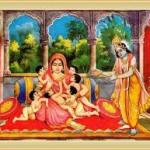Nari Shakti Kumbh and How Sri Krishna Celebrates the Feminine Spirit
The wintry days of December saw thousands of women coming to Vrindavan, and this time the reasons were beyond religious. Vrindavan celebrated Nari Shakti Kumbh, a women-only Kumbh organised jointly by the Government of Uttar Pradesh and Bhimrao Ambedkar University, Agra. It was a celebration of women power with discussions on various topics relevant to women in the present-day.
Women in Vedas
Hinduism offers women a special place of reverence. It celebrates womanhood as the cosmic divine power that runs throughout the universe. As a mother, she is Adi Shakti or Adi Parashakti; as a mysterious force of psycho-spiritual nature, she is Kundalini Shakti. Various ancient Hindu texts celebrate the feminine power. In Chapter 10 of the Rigveda, the feminine power is eulogised as Devi Shukta, the ultimate power behind all of cosmos:
“I am the Queen, the gatherer-up of treasures, most thoughtful, first of those who merit worship.
Thus Gods have established me in many places with many homes to enter and abide in.
Through me alone all eat the food that feeds them,-each man who sees, breathes, hears the word outspoken
They know it not, yet I reside in the essence of the Universe. Hear, one and all, the truth as I declare it.
I, verily, myself announce and utter the word that gods and men alike shall welcome.
I make the man I love exceeding mighty, make him nourished, a sage, and one who knows Brahman.
I bend the bow for Rudra that his arrow may strike and slay the hater of devotion.
I rouse and order battle for the people, I created Earth and Heaven and reside as their inner controller.
On the world’s summit I bring forth the Father: my home is in the waters, in the ocean.
Thence I prevade all existing creatures, as their Inner Supreme Self, and manifest them with my body.
I created all worlds at my will, without any higher being, and permeate and dwell within them.
The eternal and infinite consciousness is I, it is my greatness dwelling in everything.
— Rigveda 10.125.3 – 10.125.8
Nari Shakti Kumbh is, in a way, a celebration of that power.
Sri Krishna and the feminine form
Many stories about Sri Krishna narrate how He dressed up as a woman. Some even believe that Sri Krishna wore a woman’s attire during His Raas-leelas. There are various other episodes or leelas in Sri Krishna’s life where the Lord either dresses up as a woman or takes a feminine form.
Lilahava (When Sri Krishna and Radharani exchanged their clothes)
In his book The Nectar of Devotion, Srila Rupa Goswami writes, “Krishna once dressed Himself up exactly like Srimati Radharani, just to create fun among His friends. By seeing this dress, Krishna’s friend Subala became very astonished.”
Sri Krishna as Shyam Sakhi
Once, in order to win over Radha who was upset with Krishna, He dressed up as a heavenly Kinnari goddess. The gopis were mesmerised by ‘her’ beauty and asked if ‘she’ could sing a song to uplift the spirits of Srimati Radhika. The beautiful woman said that her name was Shyam Sakhi (because of her dark complexion) and sang an enthralling song for the gopis. Pleased with the song, Sri Radhika wanted to gift Shyam Sakhi her own pendant. However, Lalita noticed that Shyam Sakhi was bent in three ways. Radha understood that Shyam Sakhi was actually Shyam Himself.
Sri Krishna as Mohini
In one of the folklores surrounding the Mahabharata, Aravan (the Tamil god Kuttantavar) was to offer himself as a sacrifice for Kalappali (sacrifice to the battlefield). He agreed to do this to ensure the victory of the Pandavas, his father, and his uncles. In return for this ultimate sacrifice, he asked for three boons from Sri Krishna, who guided the Pandavas in the battle of Kurukshetra. The third boon was the marriage of Aravan before he sacrificed his life. In the ancient times, bachelors were buried and were not cremated. According to the Kuttantavar cult myth, Krishna took the form of Mohini and married Aravan. Mohini spent the night with Aravan and when he died, Mohini lamented his death, discarded all her bridal finery, and then came back to the original form of Krishna. This story forms the crux of the eighteen-day annual festival at Koovagam in Tamil Nadu.
Vrindavan’s Nari Shakti Kumbh is a reminder of the power of the feminine and what can be done to help women realise their potential. Set in the leela-kshetra of Sri Krishna, it is also a beautiful way to remind one of the many ways in which the Lord Himself upheld the spirit of womanhood. Come, be a part of Vrindavan, and live surrounded by Sri Krishna’s love every day of your life.
HARIYALI TEEJ IN VRINDAVAN: CELEBRATION AND SIGNIFICANCE
The many festivals and celebrations that give India her unique identity find a new dimension in Vrindavan, the leela kshetra of Sri Krishna. Hariyali Teej is one such festival that holds a special significance in the holy Braj. Deeply ingrained in Vrindavan’s spiritual and cultural ethos, it is a colourful event celebrated by the women during the monsoons. The third day of the waxing moon in the month of Shravan is celebrated as Hariyali Teej or Green Tritiya. This year, the fortnight long festival of Teej will commence on August 13 in the holy Braj.
Special Hariyali Teej celebration in Braj
On this auspicious day, Bankebihari Ji swings on the magnificent hindola made of sandalwood, which is covered with ornamental silver and gold. It is a special day of the year when the Lord gives continuous darshan to his bhakts. The festival is celebrated with much fervour and enthusiasm in the many temples of Vrindavan. Many other temples in the holy Braj are decorated in shades of green and with colourful swings. These temples include Radhavallabha, Rasabihari Nikunjvihari, Radharaman, Godavihar, Radha Damodar, Yugalkishor and Radha Shyamsundar. The temples in Vrindavan hold special programs until Jhulan Purnima when the idols are brought out of the sanctum sanctorum or ‘garbha griha’ to swing to the devotional tunes of bhajans that glorify Shri Krishna’s hindol pastime.
The Sri Krishna idols are adorned with intricately designed garments and beautiful accessories like flute, garlands, crowns and anklets. Hariyali Teej celebrations allude to Shri Krishna’s favourite pastime which was swinging on beautiful swings in verdant forests of the holy Braj with His consort, Radha Rani.
The Other mythical significance of Hariyali Teej
Hariyali Teej signifies the reunion of Shankar Mahadev and his wife Parvati. Teej marks Parvati’s sacrifice to win over the heart and mind of Shiva. She observed a strict vrata for 108 years to show her love, devotion and attachment for Lord Shiva, before Mahadev accepted her as his wife. A few of the Hindu scriptures suggest that Parvati took birth 107 times before she was born again as Parvati. And it was on her 108th birthday that she was blessed to be Lord Shiva’s wife due to her endurance, resolve, perseverance and penance over several births. Hariyali Teej is celebrated in admiration and devotion of Ma Parvati, who is also called Teej Mata. The Hindu women in Uttar Pradesh, Punjab, Haryana, Rajasthan and Bihar celebrate Teej for their husbands’ wellbeing and marital bliss.
How Women Celebrate Hariyali Teej
On this special day, married women and young damsels wear colourful saris and bangles, apply beautiful Mehendi on their hands and beautify themselves with jewellery. Women also sing special songs and swing on specially-arranged jhulas. Swings play a significant role in Hariyali Teej. Beautifully adorned jhulas are hung from tree branches on which women swing, singing traditional Teej songs. Hindu women observe an austere fast during this festival to earn the blessings of Lord Shiva and Goddess Parvati for a blissful married life. The vrata lasts for a month until the Shukla Tritiya of Bhadra.
Hariyali Teej is considered to be a major festival in Braj. Ornately decorated green cloth with gold and silver finishing is now being prepared for the festival at Mathura’s Shri Krishna Janma Bhoomi temple. The Janma Bhoomi temple has also announced a programme schedule to celebrate Hariyali Teej. If you visit Vrindavan during this festival, you will be greeted by thousands of devotees on the streets walking towards the temples. However, just like during the other popular festivals of Braj, it may be difficult to get a comfortable accommodation during the festive days. However, if you have a home in Vrindavan, you can always be a part of Braj’s beautiful celebrations without ever having to worry about an accommodation. Krishna Bhumi, the temple township in Vrindavan, offers beautiful apartments and villas adjacent to the proposed Vrindavan Chandrodaya Mandir. Alternatively, become a Krishnabhumi Holydays member and spend 7 blissful days in Vrindavan every year.
Come, feel the magic in Vrindavan’s air and transform your life forever.
Radhe Radhe!
Krishna: The Eternal Friend
This Friendship Day, as friendship bands are tied, moments re-lived and celebrated, and memories recounted, it might also be a good time to question ourselves on the meaning of friendship and who our true friend is. Is it the one with whom we have all those 2 AM conversations, who is the safe repository of all our secrets, and someone who is always ready to help or is it someone who we trust to be always there for us?
We wonder if true friendship can ever have a definition that is timeless and universal. However, one can still try to understand the beauty of this special bond that enriched humankind since times immemorial. To begin with, let us turn to Sri Krishna and His friendship with two very special people of His life.
Krishna and Sudama
The friendship between Sudama, a poor Brahmin, and Krishna, the son of Nanda Maharaja is the essence around which many stories have been told and retold. Among the many tales what stands out is an account of the time when Sudama decided to visit Sri Krishna, then the king of Dvaraka.
It was Sudama’s wife who had urged her husband to visit his friend and ask for financial help. Sudama, an ardent devotee of Lord Vishnu, found it very difficult to support his wife and children on alms alone. Hence, he decided to pay Sri Krishna a visit. However, in his heart of hearts, he was anxious about how his childhood friend-turned-king would treat him, a poor friend. Sudama carried with him a little amount of flat rice as a gift since as a child Krishna loved flat rice. Sri Krishna was elated on meeting His friend after so many years. Not only He but His entire kingdom gave Sudama a royal welcome and extended a warm hospitality. Sri Krishna washed Sudama’s feet with His own hands and then ordered to sprinkle the water throughout His kingdom. Sri Krishna believed that the water which was touched by such a devout follower of Sri Vishnu would purify entire Dvaraka.
Sudama was so touched by Krishna’s hospitality that he could not bring himself to ask for any help. He shyly gave the flat rice to Sri Krishna which He was overjoyed to receive. Sudama, on his part, bid his friend adieu without asking for anything. However, Sri Krishna is not an ordinary friend. He knew why Sudama had visited Him and had a surprise for Sudama that greeted him when he reached home. Sudama was astonished to find that in place of his small cottage, there stood a palatial building with all the comforts one could think of. Inside were his wife and children adorned in beautiful clothes and jewellery, waiting for him.
Krishna and Arjuna
Sri Krishna and Arjuna share a very special relationship that finds mention throughout the Mahabharata. In fact, Sri Krishna was not just a friend to Arjuna but also his philosopher and guide. That is why, before the battle of Kurukshetra, when Arjun had to choose between Sri Krishna’s army and Sri Krishna as an advisor, he chose the latter. It was Sri Krishna who drove Arjuna’s chariot in the battlefield and enlightened him about his dharma when he questioned the efficacy of waging a war against his kin.
Arjuna is not just a loyal friend but an ardent devotee as well and that is why, of all the people, Krishna revealed Himself to His Arjuna, His Parth— that forms the content of the Bhagavad Gita. Arjuna is overwhelmed by the sight of Sri Krishna’s magnificent form and says, “I have in the past addressed You as ‘O Krishna,’ ‘O Yadava,’ ‘O my friend,’ without knowing Your glories. Please forgive whatever I may have done in madness or in love.” (Bhagavad Gita Chapter 11, Chapter 41)
Srila Prabhupada explains,
“Although Krishna is manifested before Arjuna in His universal form, Arjuna remembers his friendly relationship with Krishna and is, therefore, asking pardon and requesting Him to excuse him for the many informal gestures which arise out of friendship. He is admitting that formerly he did not know that Krishna could assume such a universal form, although Krishna explained it as his intimate friend. Arjuna did not know how many times he may have dishonored Him by addressing Him as “O my friend,” “O Krishna,” “O Yadava,” etc., without acknowledging His opulence. But Krishna is so kind and merciful that in spite of such opulence He played with Arjuna as a friend. Such is the transcendental loving reciprocation between the devotee and the Lord. The relationship between the living entity and Krishna is fixed eternally; it cannot be forgotten, as we can see from the behavior of Arjuna. Although Arjuna has seen the opulence in the universal form, he could not forget his friendly relationship with Krishna.”
Krishna was a friend to Sudama, a poor simple Brahmin and to Arjuna, the mighty warrior and in each instance, He gave His friends what they needed the most. To Sudama He bestowed His generosity in the form of a new house and material wealth, to Krishna He bestowed His wisdom and revealed His true identity. Sri Krishna is there for everyone—to anyone who is truthful in his belief and dedication to the Lord.
So, coming back to where we began, who is our true friend? Our best friend? Someone who will always be there for us, no matter where, no matter when, no matter what. Without an iota of doubt, it is Sri Krishna—the Supreme Godhead. And what better way to be close to Him than in the land that He loved so much—His very own Vrindavan?
Radhe Radhe!
Krishna Bhumi: Krishna’s wonderland
Tucked away in the serenity of Vrindavan is the precious project that is called Krishna Bhumi. Being built as a haven for Krishna lovers all over the world, it is situated at the feet of the Vrindavan Chandrodaya Mandir, which is set to be a one of a kind skyscraper temple dedicated to Lord Krishna. As a resident of Krishna Bhumi you will not only get a feeling of being one with Krishna because of the proximity to the VCM, you will also enjoy special privileges like separate access to the temple and a chance to do a special puja once in a year.
Added to all of this, Krishna Bhumi is packed with all the amenities that are required to lead a modern and comfortable lifestyle. Starting from a wellness spa and Ayurveda centre and a gymnasium to a swimming pool and guest apartments where your friends can stay when they visit you. Krishna Bhumi is a project where you can choose to reside permanently or you can also opt for it as a weekend home.
The project is conveniently located just over an hour’s drive from South Delhi and is connected by the newly inaugurated six lane Yamuna Expressway. Krishna Bhumi, to put it in a phrase, is a divine combination of luxury and spirituality. Own your own piece of Krishna Bhumi today. Call +91 969696 8899 and choose from an array of studio, 1, 2 and 3 BHK apartments at our second phase, Tulsi Vas. Prices start from 20.87 Lacs only. 
A record 32.5 million prilgrims visited Braj in 2015
According to a media report, a record number of pilgrims had visited Mathura during 2015. Representatives of the Mathura Chamber of Commerce and business community reported that each visitor spent an average of Rs 200 on all kinds of expenses, thus contributing to the economy at large.
Source: Vrindavan Today and Amar Ujala
Ekal Prayas: Golden words by Ravindra Chamaria
“I must begin by saying that I hail from a community that has a rich tradition of giving back and contributing to society. We have been known to take up the cause of nation building quite passionately. Therefore, the sentiment of CSR was perhaps instilled in me by my forefathers and ancestors, much before I actually started practicing it. Right from childhood, I have often experienced so many instances of large heartedness, even when wallets were light.
As I was growing up, I faced several hurdles and challenges but they did not deter me from dreaming big. I find facing challenges to be exciting and the loss of the family wealth bequeathed a firm determination in me to recover the losses and make it even bigger.
Our group ‘Infinity’ today enjoys a highly credible reputation and has a roster of some well-delivered path breaking, pioneering projects under its belt. Infinity takes Corporate Social Responsibility very seriously. To this effect, we have taken up the cause and mission of expanding the opportunity of education for meritorious students through Anant. We have also been long-standing partners and supporters of The Akshaya Patra Foundation, The Jaipur Foot, Vedanta Academy, Eye Care & Research Centre, Institute of Neurosciences, Kolkata, Manovikas Kendra, National Academy of Environment, Matri Bhavan and so on.
We are also building a first-of-its-kind, senior citizens’ home at Ibiza Club, Kolkata, called ‘Jagriti Dham’. A brief snapshot of some of our initiatives:
Anant Education Initiative
Anant Education Initiative, a merit scholarship programme, is an initiative of The Infinity Group, aimed at helping underprivileged but meritorious students who have excelled in their Madhyamik and Higher Secondary exams (West Bengal Board of Secondary Education) to pursue higher education of their choice. The scholarship programme commenced in March 2011.
Jagriti Dham
Spread over 2 acres, Jagriti Dham is an initiative undertaken by us to create comfortable, eco-friendly homes for senior citizens with complete elder care and lifestyle facilities. We truly believe that Jagriti Dham can be their Gold Age Home! It is being conceived as a cozy nest in lush green, serene, eco-friendly surroundings, an abode of peace and joy, just 15 km from Kolkata.
Association with The Aakshaya Patra Foundation:
The Akshaya Patra Foundation is the world’s largest non-profit, nongovernment organization that runs midday meal programmes in schools across India. The Akshaya Patra Foundation has been feeding 1,402,393 children in 10,661 schools in 23 locations in 10 states in India. Akshaya Patra incentivizes the marginalized children to attend school, thereby ensuring their education. We work closely with the Akshaya Patra Foundation and I am associated with Akshaya Patra as their Vice Chairman on their global advisory board and as a Trustee on their London Board. Our group offers its services towards Akshaya Patra by providing advisory services and conducting fund-raiser programmes.
Krishna Bhumi
Infinity Group strongly believes in the immortal teachings of Lord Krishna. In fact, as the world around us continues to get more complicated and challenging, His teachings continue to show us the path and His words remain timeless. The Vrindavan Mathura-Braj is one such circuit, where Krishna followers, thinkers and Krishna Bhumi seekers from all over the world, from every possible walk of life come visiting every year. Vrindavan is considered one of the holiest towns of the world and is steeped in folklore and tradition.
Our project, Krishna Bhumi, coming up in the heart of Vrindavan is an iconic temple township that aims to recreate the magic of Krishna and his many folk tales. The nucleus of Krishna Bhumi is a towering temple: The Vrindavan Chandrodaya Mandir, which will stand at a height of 700 ft when completed. For us, Krishna Bhumi is a once in a lifetime opportunity to be a part of an iconic development.
At Infinity, we really do not feel that we are obliging anybody by carrying out CSR. In fact, we are only fulfilling our own duty and helping our own lives become more meaningful”.
Ravindra Chamaria
Chairman, Infinity,
Kolkata


